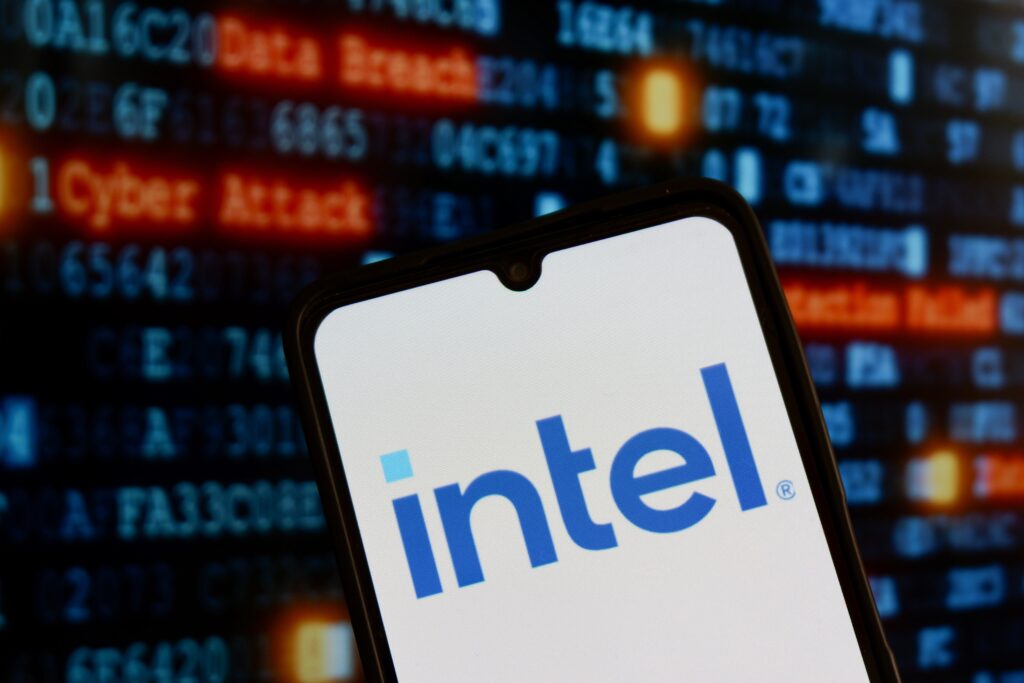US Commerce Secretary Howard Lutnick announced on Friday that Washington will acquire a 10% stake in Intel.
“This historic agreement strengthens American leadership in semiconductors. It will grow our economy and secure our technological edge,” Lutnick wrote on X. He posted the message with a photo of himself alongside Intel CEO Lip-Bu Tan.
President Donald Trump confirmed the deal earlier in the Oval Office. He described it as “a great deal for them.”
Shares of the Santa Clara-based company rose more than 5% on Friday.
Intel confirmed that Washington will invest $8.9bn (£6.6bn) in its common stock.
Funding redirected to Intel
Intel explained that the money will come from grants previously approved but not yet paid. That includes funds from the CHIPS and Science Act, which was passed under President Joe Biden.
“As the only semiconductor firm conducting leading-edge R&D and manufacturing in the US, Intel is deeply committed,” Tan said. “We will ensure the world’s most advanced technologies are American made.”
Tan praised Trump’s push for domestic chip production. He said it fuels “historic investments in an industry vital for growth and security.”
The CHIPS Act was designed to bring semiconductor manufacturing back to the United States.
Intel struggles to keep pace
Intel has faced difficulties in expanding chip production. It has fallen behind Nvidia, whose market value has soared past $4tn, while Intel’s lingers near $100bn.
Once a dominant Silicon Valley force, Intel missed opportunities in mobile technology. It also lost ground in artificial intelligence, where Nvidia now leads.
Trump pressures Intel leadership
Trump recently demanded Tan’s resignation. He accused the Intel chief of questionable ties to China.
The president called Tan “highly conflicted” due to alleged investments in companies linked to the Chinese military.
Tan rejected the accusations as “misinformation” in a note to employees. He said he always acted within the law and upheld ethical standards.
Tan, a US citizen, was born in Malaysia and raised in Singapore. US law allows Americans to invest in Chinese firms.
Trump’s attack followed a letter from Republican Senator Tom Cotton to Intel’s board. Cotton questioned whether the company could manage taxpayer funds responsibly and comply with security rules.
After the criticism, Tan met Trump at the White House.
White House defends bold step
Press Secretary Karoline Leavitt praised the move as “a creative idea that’s never been done before.”
Reports said the Trump administration also ordered Nvidia and AMD to give Washington 15% of revenue from AI chip sales to China.
Jacob Feldgoise, Senior Data Research Analyst at Georgetown University, compared the Intel deal to earlier government grants.
“It serves the same purpose,” Feldgoise said. “It shows stronger government involvement in markets to secure economic and national interests. The goal is regaining leadership in chip manufacturing.”
The deal is unusual today but has historical precedents.
Past examples of state stakes
During the 2008 financial crisis, Washington took a majority stake in General Motors as it neared bankruptcy. The government later exited, recording a $10bn loss.
Feldgoise noted that the Trump administration also pursued a similar deal earlier this year with MP Materials. The Nevada-based firm mines rare earth metals.
That agreement drew scrutiny after revelations that the Department of Defense used a Cold War-era law to bypass procurement rules.


